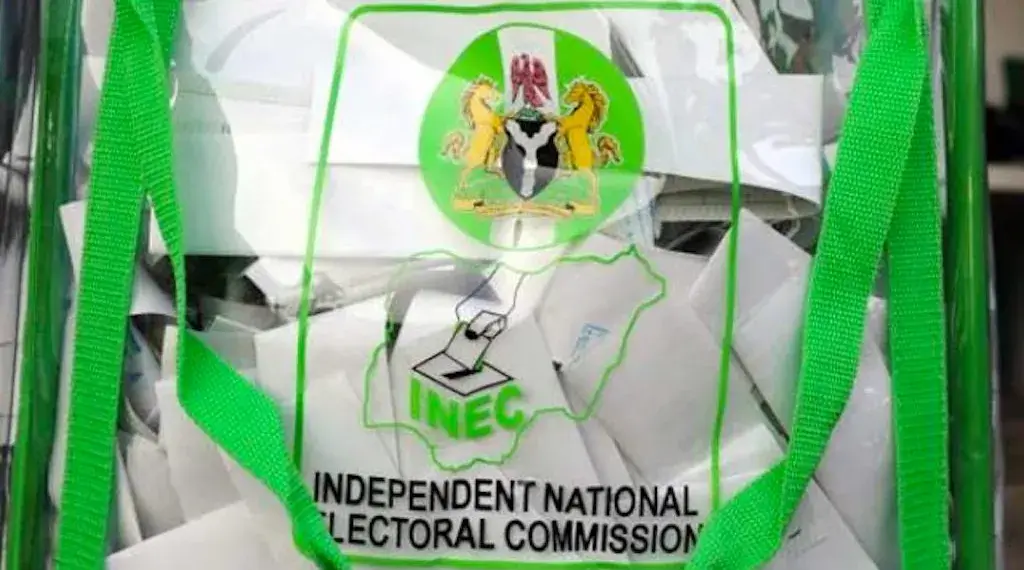The aviation sector in Nigeria faces significant challenges that have stifled its contributions to economic growth. Senior Partner, Olisa Agbakoba Legal (OAL), Olisa Agbakoba, in this interview with NGOZI
EGENUKA, advocates the insertion of a corporate governance code in the Nigeria Civil Aviation Authority (NCAA) Act, as a practical solution.
How do you think the government can speed up efforts, especially in the aviation sector, to tackle the economic crisis?
Recently, while I spoke at Godswill Apkabio’s birthday celebration, I reiterated the need for a sense of urgency. The Nigerian government needs to inculcate speed to deal with the grave economic crisis.
Festus Keyamo (Minister of Aviation and Aerospace Development) should be applauded for making a very tough decision, which hasn’t happened since. Former Head of State of Nigeria, Sani Abacha, was the first to tackle the British government head-on on the question of Bilateral Air Service Agreement (BASA). He refused British Airways to land in Nigeria after an aircraft was arrested in London. British Airways (BA) was one hour to land in Kano and one hour to land coincidentally in Lagos. He denied them landing rights and for three years, they had to go to Accra.
Keyamo wrote to the British government to allocate spaces to Air Peace and if they refused to reciprocate the 14 spaces that BA occupy in Nigeria, then the government would not allot them spaces in Nigeria. So, they grudgingly allowed Air Peace, then looked at what happened. Look at the space that opened. Look at how the airfares dropped by 60 per cent. So, you can imagine if all the other ministers were doing this. Dangote starts to pump diesel, 100 million litres. The price crashes. My prediction is that in the last quarter of 2024, things will begin to get better because the introduction of competition would impact positively on prices.
The British government is doing all it can to frustrate Air Peace, giving them the worst slots at Gatwick. Gatwick is not a friendly airport. It lies in the Northern part of London, there is Stansted, Luton, and then Gatwick. The best airport is Heathrow. It takes about 30 minutes from Gatwick to Victoria station. So, for this reason, people may still prefer BA, but on pricing, instead of paying N3 million with BA, one would rather pay N1.2 million with Air Peace and take the Victoria or Paddington station.
The government should not have been in the business. The problem with the last Minister was that he wanted to run the airlines himself. What’s his job? It is to create a policy environment to enable actors to play. Keyamo’s role is policy. So he took the Chief Executive Officer of Air Peace, Allen Onyema, to insist that he was the one Nigeria wanted to give the right to fly. Just these two men have made an impact on the economy so fundamental beyond what even the President Muhmmadu Buhari-led government did. Now, if two men can impact the economic process like this, how much more 10 or 20 men in other sectors?
On the heels of that achievement, there is already a push for the Fly Nigeria Act.
The important thing now is for Mr Keyamo to accept the proposal we’ve made to him to enact the Fly Nigeria Act. What the Fly Nigeria Act will do, is to say all public figures that require air travel, anything that is generated by government public funds, will be on a Nigerian carrier. It will immediately give Air Peace and the like an advantage. American diplomats in Abuja, actually fly into Lagos and go to Togo to board Delta because Delta is a designated aircraft under the Fly America Act. So this Act will strengthen the aviation space.
What are the things you see as challenges in the aviation sector in Nigeria?
Sole proprietorship. So, a man starts an aviation business and buys a couple of aircraft, but it’s a one-man thing. He is the Chairman and his wife is the Managing Director. I recommend that a corporate governance code be inserted into the Nigeria Civil Aviation Authority Act, akin to what happens in the Central Bank of Nigeria (CBN), which approves all senior appointments for the sake of transparency and accountability.
How do you think the country would benefit from this Act?
Do you know how much the CBN once owed the foreign carriers? There lies the answer. So it’s a very lucrative business. The Lagos-London route is one of the most lucrative. Otherwise, why are airlines killing themselves to come here? So, we need the Act. You can see the impact of what Keyamo has done. The idea of a sole proprietorship may take a long time to achieve.
How can the process gain traction?
We need a strong corporate code of governance. All it takes is for Mr Keyamo to send an executive bill amending the NCAA Act, and introducing a framework of governance. The regulatory environment in Nigeria is weak. What is required is the understanding that there are levels of economic activity. The first is policy, which is the work of the ministers. The second is executive agencies that we call parastatals. Third, the regulatory agencies ensure there is proper conduct and then, fourth the businessman who sees opportunities.
So, there is the opportunity for people to do business, but they are afraid that there isn’t a policy backing it. Who will invest in aviation when they are not assured of passengers, but if they see the Fly Nigeria Act, they are assured of traffic? So, we need a regulatory presence that says, we Nigerians are number one. We’re not saying foreigners should not be here, but we are a top priority. If I was the Nigerian president, I would say, I’m going to look after you. You need support. So I’m not going to give you money, but the relevant legislative and regulatory environment that enables you to thrive.
Recently, Air Peace spoke about how some foreign airlines crashed their fares, in an attempt to push them out of business. What is your take on this about competition and the free market?
The first thing is that you must have a strong competition framework. Two, your question touches on what I did in 2003 when I pushed a legal framework for fair trade legislation. So, if you can prove that the prices are predatory, they are no longer competitive. There’s a difference between predatory and competitive. If you can prove that, in any case, do we even have the relevant dispute resolution process for this? Where will he go? The regular courts? So what’s happening now? You see that there are connected factors. It goes back to the point I made about the regulatory environment.
In the UK, if you have any complaints in any of the sectors, you find out that there is a sector-specific dispute resolution mechanism. Not the courts. If there is a violation of fair trade so that what is happening now is no longer competitive, but predatory, they can now prove it and there would be a regulatory process to protect him. I, however, think Mr Onyema should be a bit more tactful.
I would hope that the players have a structured legislative response and push for relevant dispute resolution mechanisms. It’s not enough for the minister alone to push. Airline Operators of Nigeria (AON) need to do the same to achieve the needed breakthrough.
Despite efforts put in place by the CBN governor on the issue of Naira devaluation, some people see it as a gimmick, ahead of May 29 to get all the plug-ins that they are performing. What is your view on this and what is your advice on a sustainable recovery process for the naira?
Broadly speaking, there has to be an aggressive economic plan that is executed with a sense of urgency in that economic plan. This aviation thing is only a peg, but it has to open up. We are an open market. Everyone comes and dumps things here. The Nigerian policymakers don’t understand the importance of trade. If they do, they would not sideline the Office of Trade Negotiator, who I would prefer to call the Trade Ambassador.
We have to protect our market; we cannot be a dumping ground for everybody. Nigeria is a borderless country where everybody comes and dumps. So Peter Obi’s punchline from consumption to production is the perfect policy solution and if this were to hold firm in all the sectors, you would see the results. So, the answer is simple, if there was an articulated national economic policy that presents Nigeria first with the government being intentional about it, there will be a turnaround. President Tinubu’s policy speech was refreshing, but he needs to pick up speed and hold the ministers accountable, to execute these policies. Another question is, do we have the tools to deploy aggressive, urgent economic policy that translate into results? Because if we do not have the tools, we will fall behind.
How would you assess the work done by this administration in almost one year in office, and which State have you seen a flicker of governance?
The issue is the consequential support for the withdrawal of subsidy. I would have thought that the refineries should have been working but for a pilot, the most difficult part of his journey in flying an aircraft is climbing out and President Tinubu is climbing out but he needs more speed.
In assessing his one year in office, the speed is not as fast as it should be. We have not stabilised, and are behind schedule. We must look out for the ministers if they are the right people and if the right issues are being discussed before we criticise this administration.
However, I understand that the Nigerian people are suffering a great deal and there is a big trust deficit that the president needs to close in on. So, I will advise this administration to climb out and not abandon legislation to the National Assembly.
I do not see anything in the states because the state goes to Abuja to collect revenue. The states are crippled and we need the Federal Government to liberate the states so that they can function maximally.

 5 months ago
25
5 months ago
25














 English (US) ·
English (US) ·